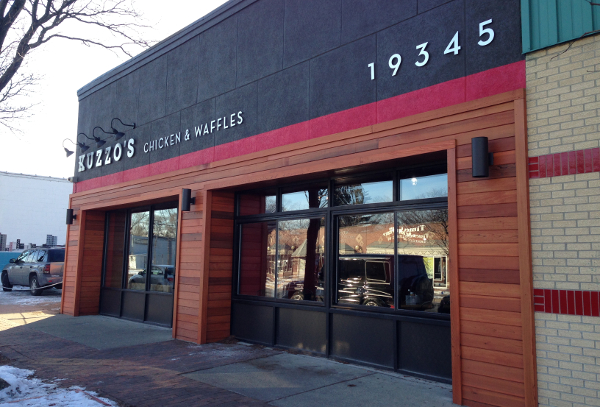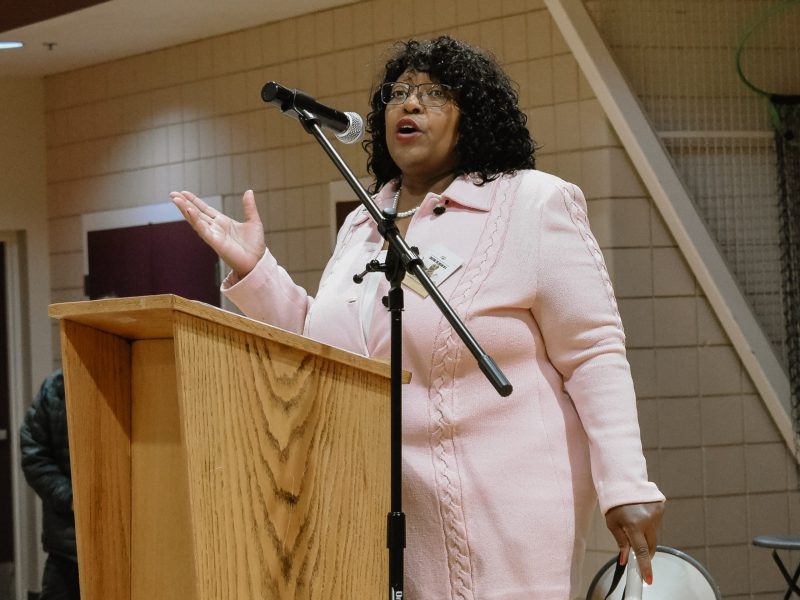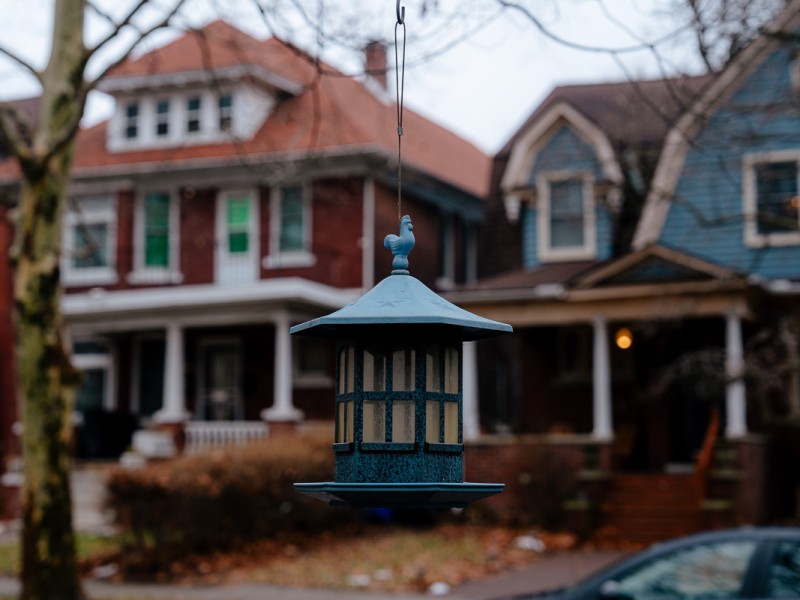Closing of city’s last Big Boy demonstrates why Detroit needs more family restaurants
The family restaurant: a place for people of all ages to get simple, affordable, sit-down meal. It's a dying breed in the city, but hopefully not for long.

On any given day at Noni’s Grille on Livernois in the Sherwood Forest neighborhood, you’ll find people ages nine to 90 having breakfast, lunch, or dinner in an affordable, pleasant setting. You might call it a “family restaurant.”
When the Big Boy restaurant on East Jefferson closed in April, some decried the loss of another venerable symbol of old Detroit. Others asked a more practical question: Where can a family—where can anyone—get a simple, affordable, sit-down meal outside the core city?
That’s a question Maurice Cox is trying to answer as he leads the city’s efforts to develop “20-minute neighborhoods,” where people live within short walking distance to amenities such as grocery stores, pharmacies, hardware stores, and restaurants.
At a time before zoning laws separated residences from commercial districts, neighborhood restaurants and other businesses were embedded in the neighborhoods, Cox explains. “The family restaurant needs families. It’s hard to create neighborhood-serving businesses when neighborhoods are still emptying out.

“In any healthy ecosystem, neighborhoods regenerate. … For so long it’s been the opposite. The only thing Detroit has experienced is loss. Part of my job is to create a place where these neighborhoods are welcoming to new families.”
These families want safe streets and accessible amenities other than fast food, carry-out businesses. While walkable neighborhoods are healthy, they’re also necessary for those who don’t have other transportation options. “Our walking experience is pretty horrible,” says Cox. “I think that we need to work on what it’s like to experience our commercial corridor as a pedestrian.”
The viability of the family restaurant
Family restaurants offer low cost, relatively simple, traditional meals in a comfortable, child-friendly setting. For many, that means the absence of alcohol, or at least a bar-like environment.
That’s a daunting challenge for a business that thrives on a low profit margin, while enduring theft and a shortage of reliable labor. Franchise restaurants like Big Boy, Denny’s, and Ram’s Horn have disappeared, but the coney island has been serving this role in Detroit for years. Restaurants like Zeff’s in Eastern Market and Detroit One in Midtown are often packed with a diverse clientele.
Other successful non-coney family restaurants, like Noni’s Sherwood Grille on Livernois near Eight Mile and Kuzzo’s Chicken & Waffles on Livernois at 7 Mile, suggest that these restaurants can make it.
It might seem obvious that a sit-down restaurant would do well in Eastern Market, but the market area wasn’t as vibrant when Mark Gojcaj built Louie’s Ham and Corned Beef in 2004. “Everyone told me I’m crazy.”
Gojcaj didn’t have a marketing study that may have projected business and residential growth in the area, only a business sense that he could draw from the adjacent Pepsi bottling plant and the market.
While the business is doing well, it’s grueling. Gojcaj says he works 80 to 90 hours a week.He also owns Downtown Louie’s, a more upscale restaurant in Capitol Park, but hired a manager to ease the load—he says that’s about all he can handle and has no interest in opening other restaurants.
You might argue that Eastern Market isn’t one of the city’s vulnerable neighborhoods. The Fitzgerald community, located between University of Detroit Mercy and Marygrove College, however, is. Surrounded by a blighted commercial district that in its day would have provided walkable amenities, today there’s little retail activity in the storefronts on Wyoming, 6 Mile, and Fenkel roads which border the neighborhood. Further north of Livernois, the area has regained some of its retail vitality from the days when it was the “Avenue of Fashion.”
Kuzzo’s, a popular restaurant that drew attention from presidential candidate Hillary Clinton, is as an example of a successful home-grown business in the city. Named after the colloquial reference for, “a term of endearment for one who is a friend or a family member … someone who has a cousin-like relationship with another person,” Kuzzo’s was established by Ron Bartell in 2015 as an “authentic” neighborhood restaurant. Unlike the typical family restaurant, it serves alcohol, but is also child-friendly, as evidenced by the menu section, “4 the Young’ns.”
“I hope this really shows that in order to be successful you don’t have to go downtown or Midtown,” Bartell said in an interview with Model D soon after the restaurant opened. “You can actually stay in the neighborhood and do good business and hire people and service the community.”
Further up Livernois near 8 Mile, Noni’s is an example of a coney island evolution. Founded as a typical carry-out coney island, owner John Vulaj rebuilt it as a family restaurant. Like Louie’s, it offers a balanced menu, including salads and traditional dinner entrees like meatloaf, chicken pot pie, roast turkey, and beef liver and onions.
According to the restaurant’s longtime manager Lisa, who asked that her last name not be used, Noni’s appeals to “common folks” from the adjoining neighborhoods. She snaps photos of patrons throughout the year and posts them during the Christmas holidays along the walls. “I’ve watched kids grow up here. … A woman had had her 89th birthday here. She said it was one of her best.”
She also notes that a nine-year boy wanted his birthday there—because of the pancakes. Noni’s has also sponsored book signing events for authors like Rosemary James.
“There’s something about these people,” Lisa says. “They’re very appreciative.” That includes a homeless woman, who agreed to stop approaching patrons when Lisa promised a meal whenever she needed it.
Born in the European country of Montenegro, Lisa works long hours and only recently began taking vacations. It’s the nature of the business, she says.
Sustaining the family restaurant
Cox notes that Magazine Street in New Orleans has places like Kuzzo’s, but they aren’t “islands.” If the wait is too long at one restaurant, you have options a few doors down. He also thinks that the national franchises, like Big Boy’s, will eventually be replaced by “home-grown” restaurants like Kuzzo’s and Detroit Vegan Soul in Indian Village.
“I think people are looking for something authentic,” says Cox. “Family-owned businesses that are authentically Detroit.”
He acknowledges, however, that it’s a tough business that could use more public vision. “There has to be a way that government can help them stay in place.”
They may not be extinct, but family restaurants in Detroit are rare. For those that exist, business is brisk. The risks are great, the labor pool scarce, and the economic incentives are minimal—all challenges for start-ups. But one thing could change that: people.
As Robin Boyle, professor of urban planning at Wayne State University, notes, “When the rooftops come back, shops and services are not far behind.”




